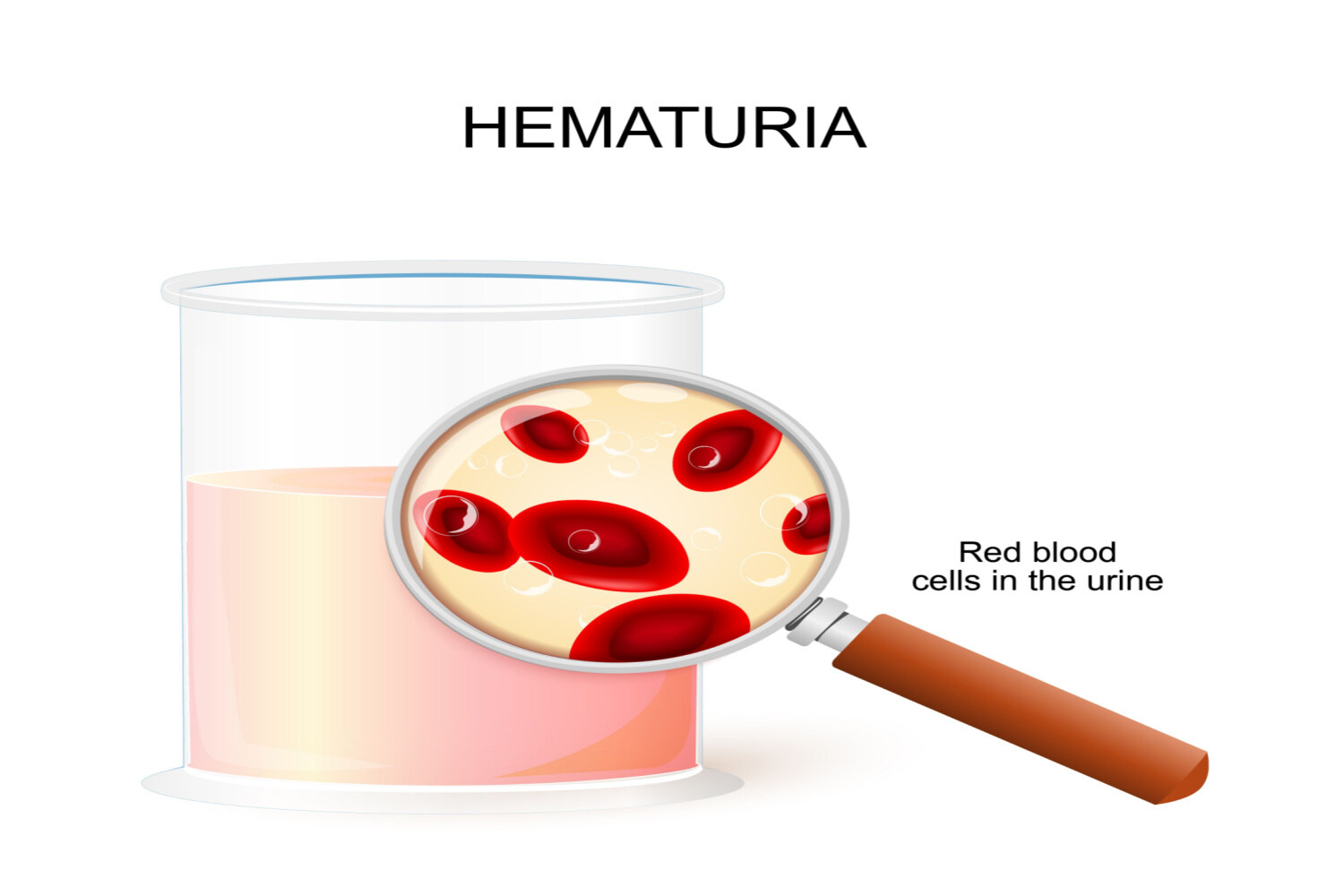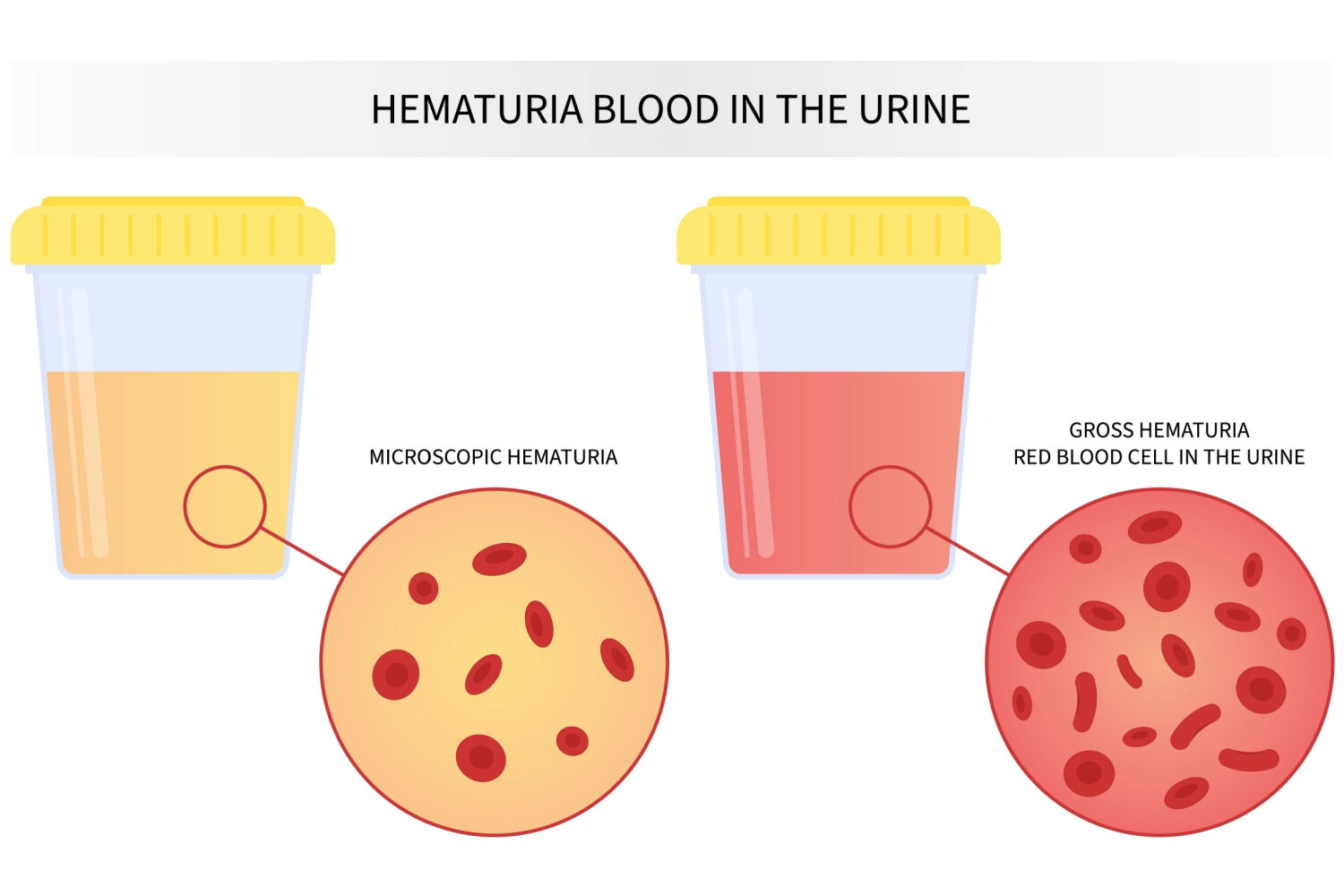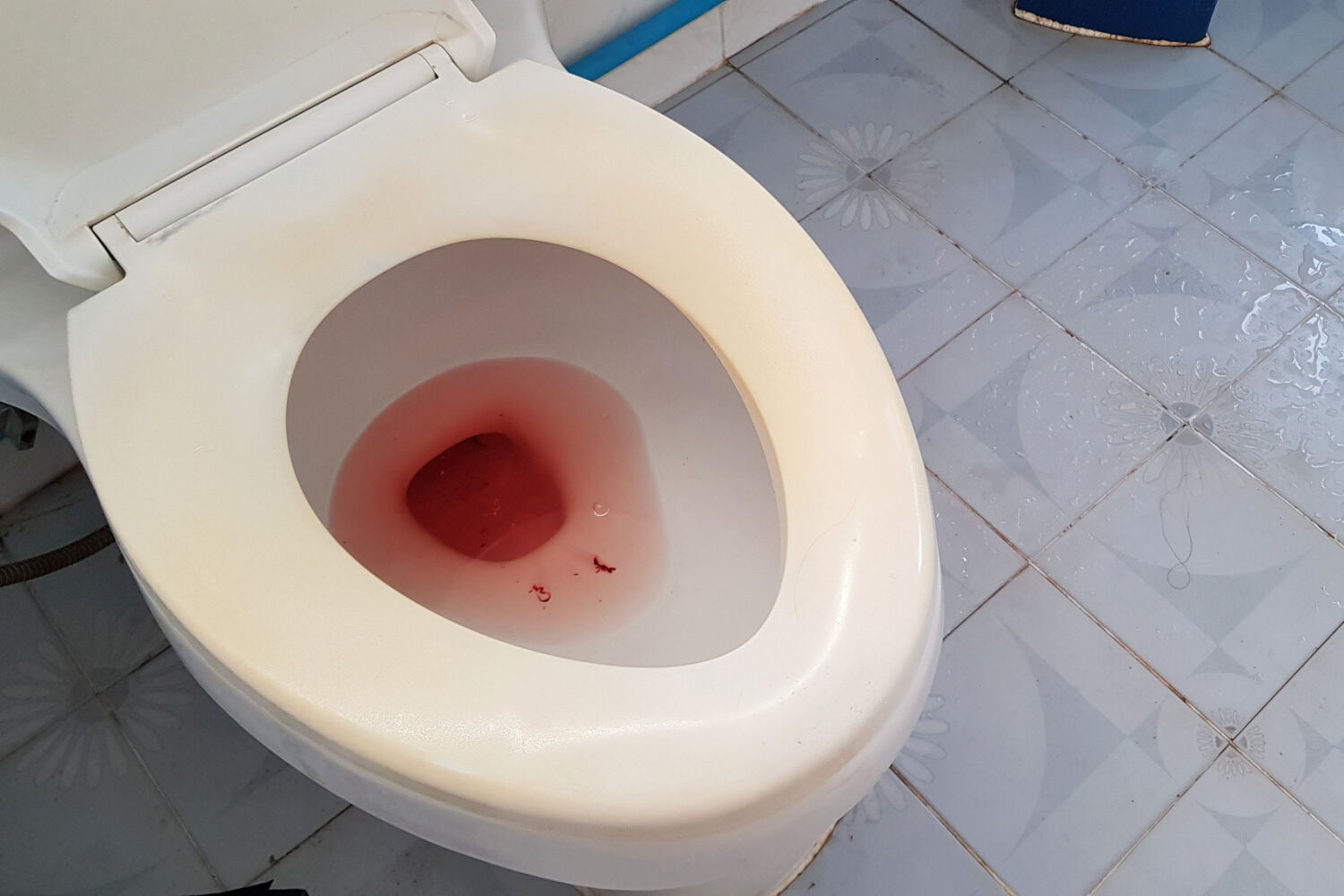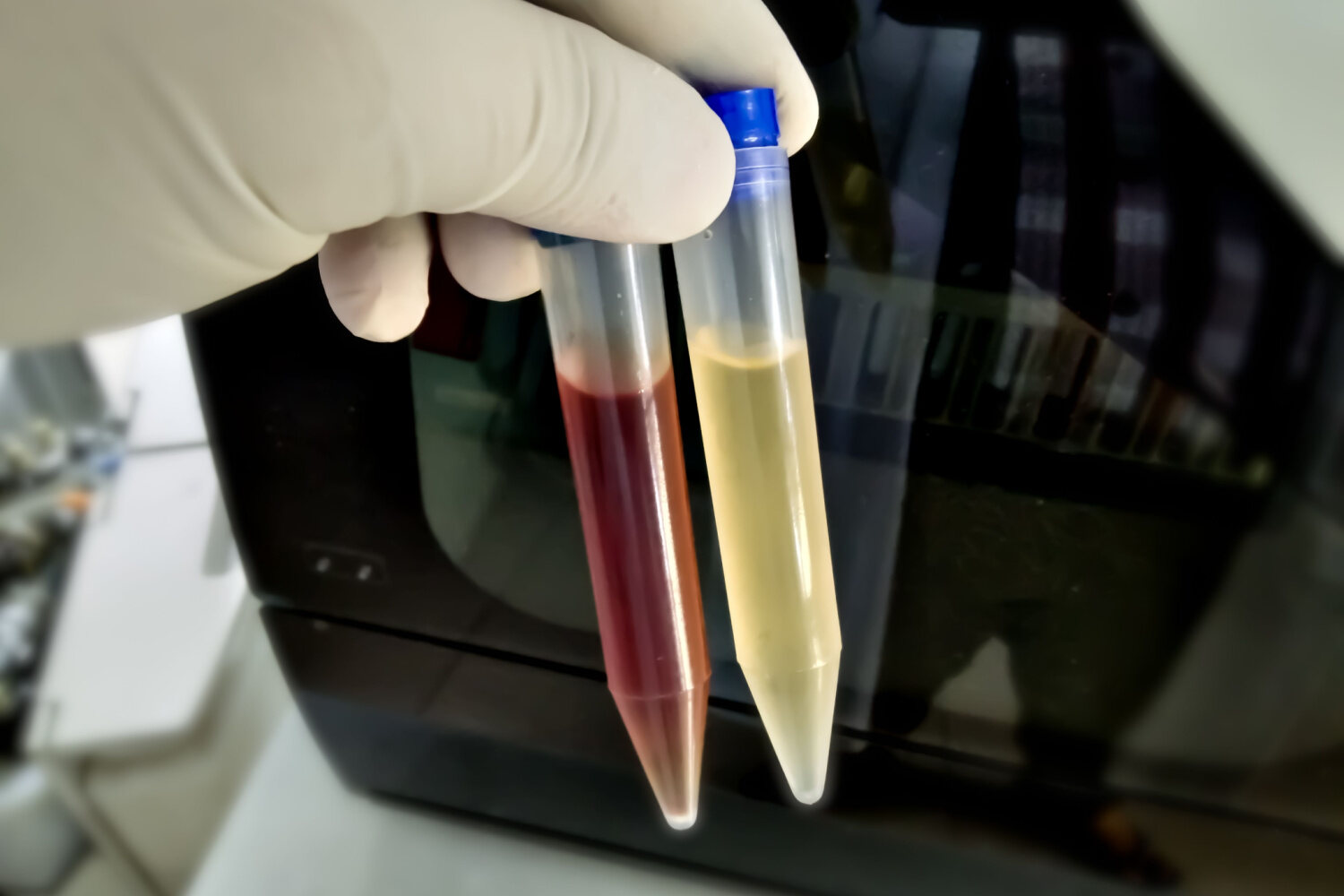
Blood in urine or hematuria might be a scary sight for both the child and the parents, rather it is common in children to sometimes have blood in urine. The incidence of hematuria is 5%-6% in the general population and 4% in the children’s age group. According to statistics, the incidence of hematuria is more in girls than boys (1a). Hematuria in children can be easily identified by seeing the change of color in urine to red or pink, brown, or cola color. However parents should also know that there is another type of hematuria in which the presence of red blood cells cannot be seen with the naked eye but only with microscopic evaluation. Either of the types have different causes and management of treatment.
Hematuria can be effectively treated. Confirmation of hematuria and identification of the cause plays a key role in treatment management. In few children hematuria is transient and can be resolved on its own whereas in others, blood in urine can be due to an underlying ailment and requires a mandatory medical attention. Neglected or untreated hematuria can lead to varied kidney complications.
In This Article
- What is Hematuria (Blood in Urine)?
- What Are The Different Types of Hematuria?
- What Are The Causes of Hematuria in Children?
- What Are The Signs And Symptoms of Hematuria in Children?
- How is Hematuria Diagnosed in Children?
- Are There Any Complications of Hematuria?
- Treatment For Hematuria in Children
- When Should You Consult a Doctor?
- FAQ’s
What is Hematuria (Blood in Urine)?
Hematuria means the presence of red blood cells in your child’s urine. Normally kidneys have a thick mesh of filtration structures called glomeruli that doesn’t allow filtration of blood into urine. Any disruption in these structures or in other parts of the kidney can cause leakage of red blood cells into the urine leading to hematuria (1b).
What Are The Different Types of Hematuria?

There are two different types of hematuria- gross hematuria and microscopic hematuria.
Gross hematuria means you can see the presence of blood in the urine through your naked eyes. The urine may appear in either of these colors such as red, pink, brown, cola or tea colored (1c).
In microscopic hematuria you can’t see the presence of red blood cells in the urine with the naked eye. It requires a microscopic evaluation that is performed during lab tests (2).
What Are The Causes of Hematuria in Children?
There may be varied reasons for hematuria in children, like-
- Inflammation in the glomeruli of the kidney where the filtration takes place
- Urinary tract and bladder infections, kidney stones, presence of high calcium in urine
- Structural abnormalities due to birth defects
- Different blood related disorders
- Trauma, tumors, and exercise injuries
- Few medications
- Food pigments such as beets, rhubarb, blackberries, and red dye used in food may cause the color change in urine if consumed
What Are The Signs And Symptoms of Hematuria in Children?

The major sign of gross hematuria is presence of discoloration mostly with and without pain. Even a very small amount of blood can cause a change of color in urine. Pain in bladder or back pain is accompanied only when there is passing of blood clots in the urine. Flank abdominal pain or low back pain may be present in case of any inflammation.
Microscopic hematuria typically has no symptoms and can come across only through urinalysis suggested for the diagnosis of any kidney disease or condition. Hematuria itself may not have symptoms but conditions that cause hematuria may have symptoms. Hematuria can be accompanied with burning urination, frequency in urination, urge for urination can be often seen in infectious conditions. Painful urination is often a symptom in hematuria caused by kidney stones.
How is Hematuria Diagnosed in Children?

In case a child is suffering from hematuria, the consulting physician may do a –
- Physical examination on the child for any presence of fever, skin rash, pain in joints, swelling and any sort of pain or burning sensation when passing urine. They may also check for any infection in the kidney or in other parts of the body
- The doctor may evaluate information on recent trauma, heavy exercise practice, past medication history, complete family history related to hematuria
- The doctor may advise dipstick test to check the presence of minute amounts of blood
- To rule out microscopic hematuria, doctor may ask to get a complete urinalysis done. It will help to to check the presence of red blood cells and proteins in the urine
- Macroscopic hematuria in children requires urine culture and an ultrasound for kidneys
- The consulting physician may evaluate the child’s blood pressure. If its on the higher side, then a further intensive evaluation of hematuria may be needed
- They may also conduct a biopsy to rule out any presence of any tumor or any such growth (3)
Are There Any Complications of Hematuria?
Hematuria is a result of an underlying condition in kidneys. Frequent presence of blood in urine needs necessary treatment. Untreated hematuria may prolong the illness and can result in serious kidney issues and associated health problems. Early diagnosis and treatment is always best.
Treatment For Hematuria in Children

A doctor may start treatment of a child based on the cause of hematuria-
- If most of the parameters turn negative, then the kid may not need any treatment. But, if the child is still having hematuria, they have to go for regular follow ups
- For children having inflammation in kidneys, positive test cultures for infection treatment includes anti-inflammatory medications and antibiotics as suggested by the doctor
- For kids having kidney stones, doctor usually prescribes medication for pain and underlying cause. The child may need further tests and procedures, if the stones are too big to pass through urine or are recurring
- The doctor may also advise regular BP monitoring and required medication in most of the cases
- Children having high levels of calcium may need to make some diet modifications and take medication to decrease the calcium levels in their urine
- A positive test for biopsy may need further intensive evaluation and treatment
When Should You Consult a Doctor?

Blood in urine might be scary, but do not panic. But do consult a doctor if you notice any other symptoms like-
- Check if you have given any red or pink colored food to your child. If yes, don’t worry the color of the urine will come back to normal in sometime. You don’t have to consult the doctor in this case
- If you continue to observe blood in urine, pain or burning sensation while passing urine, less urine, fever, rash or swelling in your child please consult a doctor
- If your child complains of headache, pain in lower back or abdomen or unusual irritability it is better to consult a doctor
Though hematuria can be panicking to both child and parent, it is treatable by addressing the underlying cause. There are many reasons for hematuria in children. Children with no underlying cause for hematuria can resolve it without the need of treatment. However any child diagnosed with underlying ailment should follow consulting doctor’s advice for tests and treatment and further follow ups as suggested for resolving hematuria. Early detection and treatment is always better to avoid serious outcomes.
FAQ’s
1. Is Blood in Urine an Emergency?
Blood in urine is always not an emergency. But it requires prompt medical attention to identify the underlying cause. Its always advised to consult a physician if you observe blood in urine and other symptoms related to hematuria in your child.
2. Can Lack of Water Cause Blood in Urine?
Lack of drinking fluids or water leads to darker color urine indicating dehydration. Mild dehydration doesn’t lead to blood in urine. Severe dehydration along with other conditions such as UTI, kidney stones etc. can cause blood in urine.
References
- Management of Hematuria in Children – [https://www.ncbi.nlm.nih.gov/pmc/articles/PMC6097192/]
- Microscopic hematuria in school children: epidemiology and clinicopathologic evaluation – [https://pubmed.ncbi.nlm.nih.gov/490233/]
- Hematuria (Blood in the Urine) – [https://www.niddk.nih.gov/health-information/urologic-diseases/hematuria-blood-urine]
